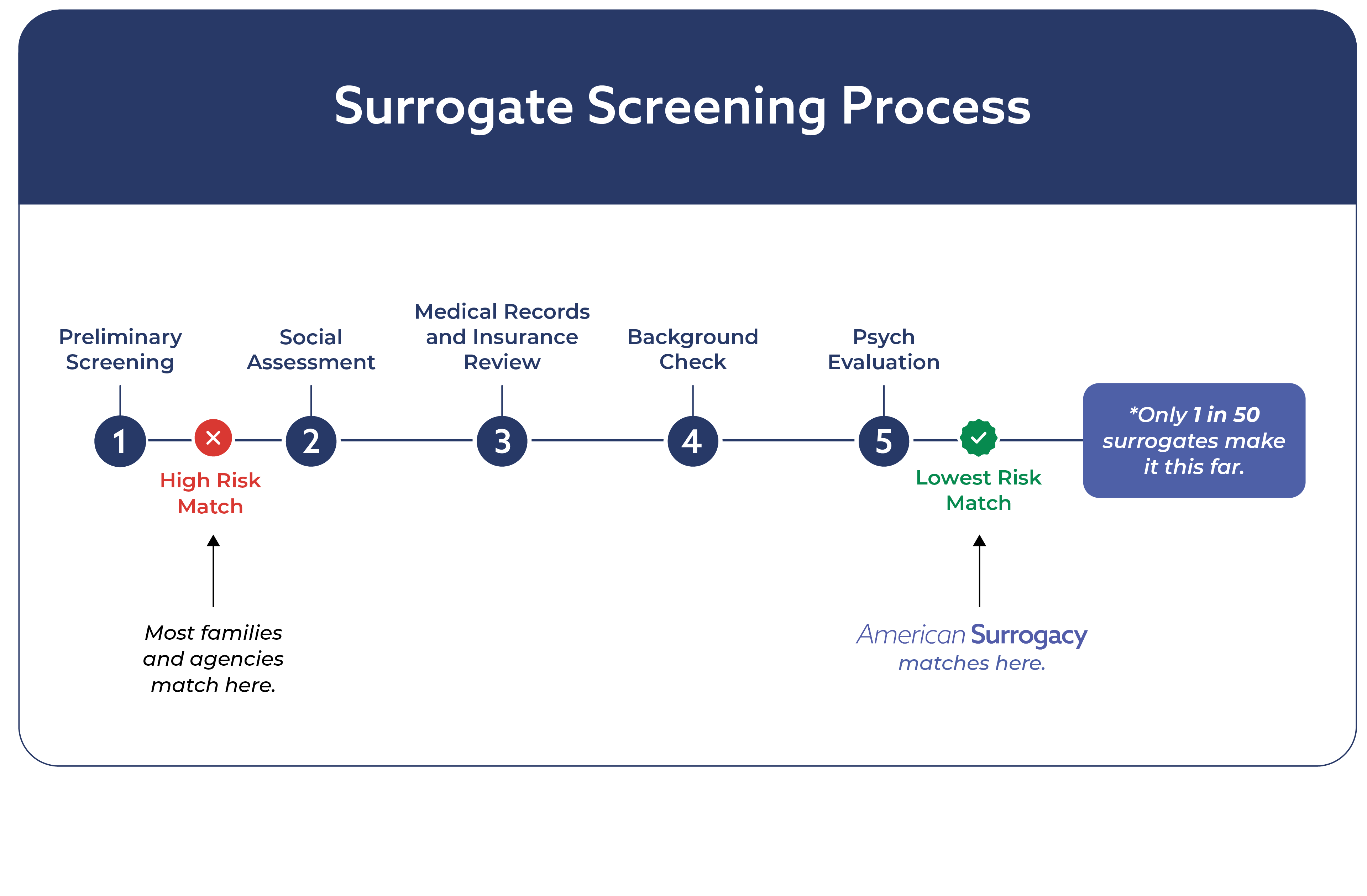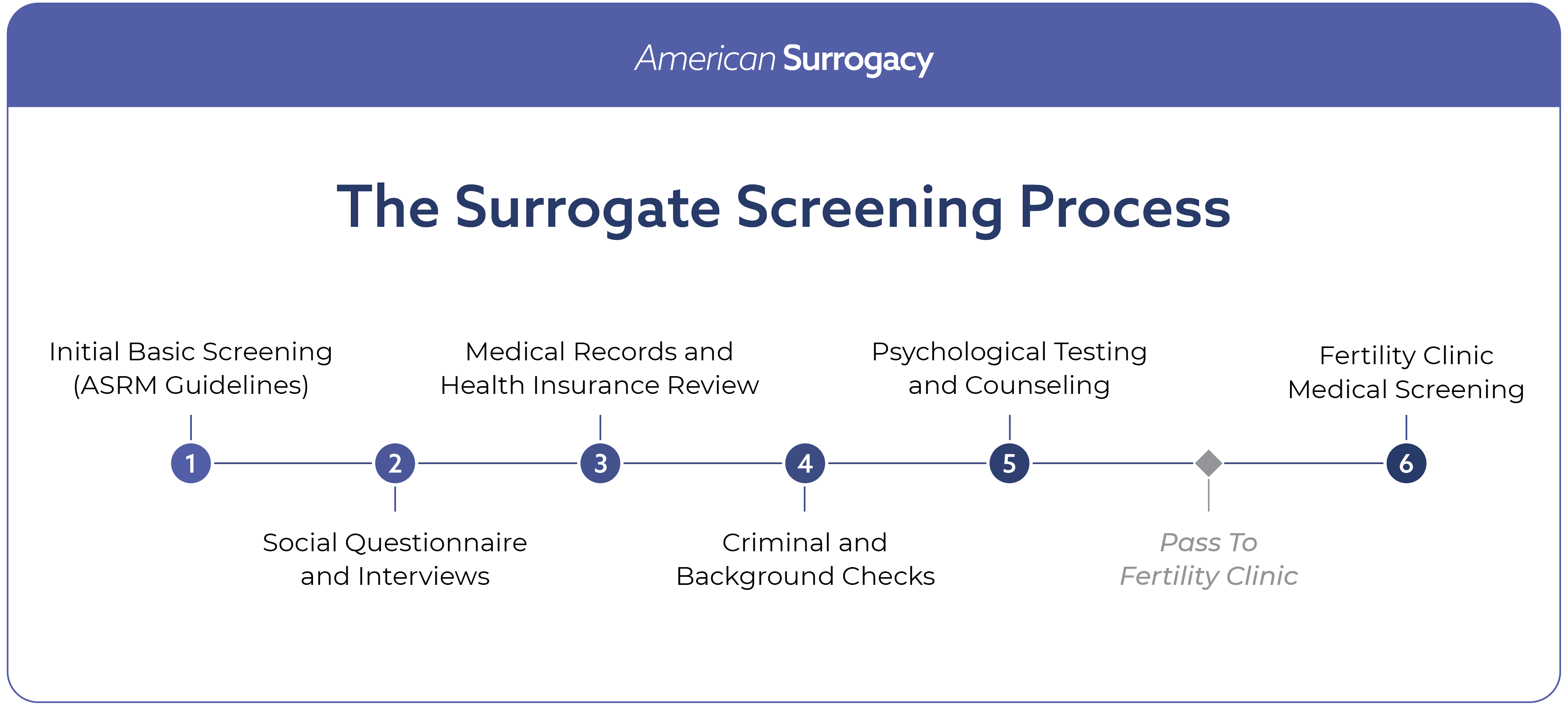Finding a qualified surrogate is one of the most significant challenges families face in surrogacy. Your success depends on when an agency matches you with a surrogate in the screening process.
Did You Know?: Only 2% of surrogates pass the screening process.
That means up to 50 candidates must be screened before one can move on to the fertility clinic medical evaluation.
Joining an agency that matches too early can leave you with:
- Failed matches requiring the screening process to restart.
- Longer wait times for a new match, increasing emotional strain and financial burden.
- More potential time lost with your future family because of a longer journey.

Through our family-building experience, we know matching with a qualified surrogate is the key to your success. That's why we never match families before a candidate has been thoroughly screened, including a psychological evaluation. This rigorous approach minimizes setbacks and increases your chance for success in having the family you want.
Our Plan for Your Success
We prioritize your time, success, and financial security in these ways:
We will never present a match without completing comprehensive screening, including a psychological evaluation. By reducing the likelihood of a failed match, you can move forward confidently and securely. Our thorough screening process increases the likelihood of a successful surrogacy journey.
The Risks of Joining Agencies That Match Too Early
Unfortunately, many professionals do not operate according to the same standards. That can put you at an increased risk for a stressful, expensive and, ultimately, failed journey.
Many agencies charge substantial, non-refundable fees before a surrogate completes screening. If the surrogate is disqualified, you can face financial loss without a clear path forward. Failed matches can delay your journey by 30-90 days or more, prolonging the emotional strain. No family should be matched with a surrogate who hasn't passed a psychological evaluation. Each failed match may require repeat screenings and re-matching, potentially costing up to ten thousand dollars per attempt. These costs add up, increasing your financial strain.
Why This Matters
Think years down the line — after a successful journey, you're choosing a babysitter for your child.
One option is to carefully check references, conduct interviews, and ensure the sitter is fully prepared, while another is to simply hire without any checks. The first option finds the right fit faster and ensures your child is in good hands.
We use this same proactive approach — fully screening surrogates before matching ensures quicker, higher-quality matches for your family.
To help you understand the different steps within the surrogate screening process, take a look below.

This step helps identify the most common disqualifiers early on, including: This stage evaluates the candidate's social environment and life circumstances for any potential red flags. Key areas of assessment include: A comprehensive review of the candidate’s past pregnancy medical history is conducted, focusing on issues that fertility clinics typically reject. These may include: This step investigates any criminal or financial history that could raise concerns, including: The surrogate undergoes a psychological evaluation to ensure she is emotionally and mentally ready for the surrogacy journey. Areas of focus include: Once the surrogate has passed all five previous steps, the intended parent’s fertility clinic will review her medical records and schedule a physical consultation to confirm her medical eligibility for the surrogacy process. Upon passing this stage of the complete screening process, you can begin the medical process and take a giant step toward your dream of parenthood. Our surrogates are thoroughly screened before matching and ready to move forward to the fertility clinic medical screening. This saves you up to 90 days in your overall journey. If you're ready to get more information on our services or to pursue surrogacy for your family, contact us today.